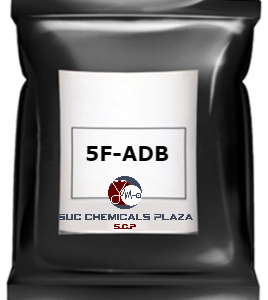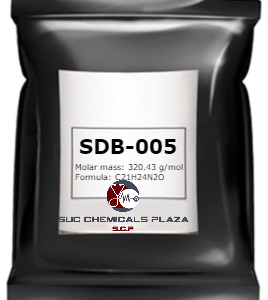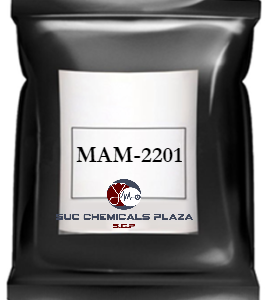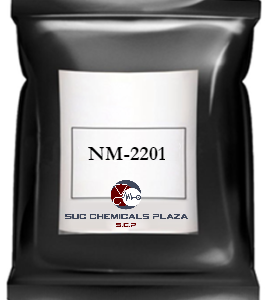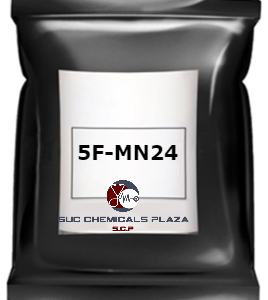Description
Buy 5F-ADB Powder Online
5F-ADB (also known as 5F-MDMB-PINACA) is an indazole-based synthetic cannabinoid from the indazole-3-carboxamide family, which has been used as an active ingredient in synthetic cannabis products. 5F-ADB is a potent agonist of the CB1 receptor, though it is unclear whether it is selective for this target. 5F-ADB was first identified in November 2014 from post-mortem samples taken from an individual who had died after using a product containing this substance. Subsequent testing identified 5F-ADB to have been present in a total of ten people who had died from unexplained drug overdoses in Japan between September 2014 and December 2014, and it was added to the Japanese banned drug list in December 2014. 5F-ADB is believed to be extremely potent based on the very low levels detected in tissue samples, and appears to be significantly more toxic than earlier synthetic cannabinoid drugs that had previously been sold.
5F-ADB (also known as 5F-MDMB-PINACA) is an indazole-based synthetic cannabinoid from the indazole-3-carboxamide family, which has been used as an active ingredient in synthetic cannabis products. it is a potent agonist of the CB1 receptor, though it is unclear whether it is selective for this target. it was first identified in November 2014 from post-mortem samples taken from an individual who had died after using a product containing this substance. Subsequent testing identified it to have been present in a total of ten people who had died from unexplained drug overdoses in Japan between September 2014 and December 2014, and it was added to the Japanese banned drug list in December 2014. it is believed to be extremely potent based on the very low levels detected in tissue samples, and appears to be significantly more toxic than earlier synthetic cannabinoid drugs that had previously been sold.
it (also known as 5F-MDMB-PINACA) is an indazole-based synthetic cannabinoid from the indazole-3-carboxamide family, which has been used as an active ingredient in synthetic cannabis products.it is a potent agonist of the CB1 receptor, though it is unclear whether it is selective for this target. it was first identified in November 2014 from post-mortem samples taken from an individual who had died after using a product containing this substance. Subsequent testing identified it to have been present in a total of ten people who had died from unexplained drug overdoses in Japan between September 2014 and December 2014, and it was added to the Japanese banned drug list in December 2014. it is believed to be extremely potent based on the very low levels detected in tissue samples, and appears to be significantly more toxic than earlier synthetic cannabinoid drugs that had previously been sold.

